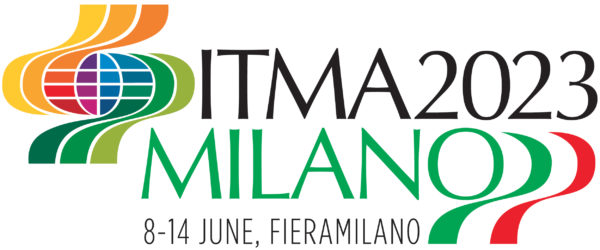The Italian Textile Industry – a report by the organizer of ITMA
Monday, 22 November 2022
The textile and fashion sector plays a relevant role in the Italian economy. In recent years it has shown dynamism and steady growth. Made in Italy, with its yarns and fabrics for high-end production, has the greatest potential for development. This is what emerges from the in-depth study “The Italian Textile Industry” published by the organiser of ITMA, the most important international trade fair for textile and apparel technology.
This article highlights some key aspects of the Italian textile and textile machinery sectors, upcoming trends and developments in view of the important event scheduled for this June: ITMA 2023.
From demand for technical textiles to the development of innovative textile machinery
The growing demand for technical textiles applied to different fields of industry (from apparel to automotive, from filtration systems to medical and biomedical) has led to the increase of investments in this specific field and consequently to the advancement of technology with the aim of making high-performance functional textiles, even capable of interacting with the body and the environment.
The production of technical textiles, in fact, accounts for about 22 percent of the Italian textile production. With more than 4 billion euros in sales, Italy ranks first in Europe for production of these fabrics, and fourth in the world: more than 60 percent of domestic production is exported.
Demand stimulates research, a process that has led to greater technological development, in which our country is an international leader.
A path of innovation made possible also thanks to the adoption of enabling technologies for Industry 4.0: Italian companies in the textile machinery and textile sector, in fact, were among the first to embrace this approach, also thanks to the Italian Government’s policy of encouraging investments aimed at this transformation.
Research and innovation in this field are focused on two fronts: the creation of innovative textiles from natural, waste, artificial or classic materials such as hemp and linen, and investment in new machinery capable of supporting this production. The area of finishing represents an important step in the textile production process, where the role of machinery is crucial.
Sustainability: one of the pillars of ITMA, a concrete commitment for companies in the sector
Over the past decade, the Italian textile supply chain has made a significant transition toward more sustainable production and consumption models.
Now the sector is being called upon to achieve goals defined by the EU’s Green New Deal. Last year, Camera Nazionale della Moda Italiana (the National Chamber for Italian Fashion) published “Good Manufacturing Practices,” a set of guidelines regarding the use of chemicals in the fashion production chain.
Sistema Moda Italia (SMI) – the Italian Textile and Fashion Federation – has been on this path for some time, which has led to a clear definition of the concept of sustainability: “being a sustainable company means not only respecting the environment, saving raw materials and economic resources, but also respecting the health of workers and consumers, respecting human rights, rationalization of creativity and production processes, stimulation of innovation and research.”
Circular model: from wool to nylon
Bringing companies closer to recycling by reducing the use of virgin raw materials has not only environmental value, but also economic value for the companies and districts to which they belong.
The production of recycled textile materials in Italy is growing; for example, the recycling of wool and its derivative yarns has always been a process inherent in the Italian tradition, and Prato represents a center of excellence with 400 certified companies according to the Global Recycled Standard. The cotton, nylon and textile fiber supply chains made from recycled materials have also grown considerably in recent years, increasingly adopting the principles of the circular economy.
Technology, smart textiles, digitization, Industry 4.0 and sustainability: on these issues, which will be the focus of ITMA 2023, Italy has shown that it is one step ahead and has embarked on a virtuous path thanks to the commitment and enterprising spirit of companies throughout the sector.
The June 2023 event will be an opportunity to show the world the innovations and progress achieved by the Italian textile machinery manufacturers.
ACIMIT is proud to be a participant and spokesperson for this change.
Follow us for more information.
Link https://itma.com/

